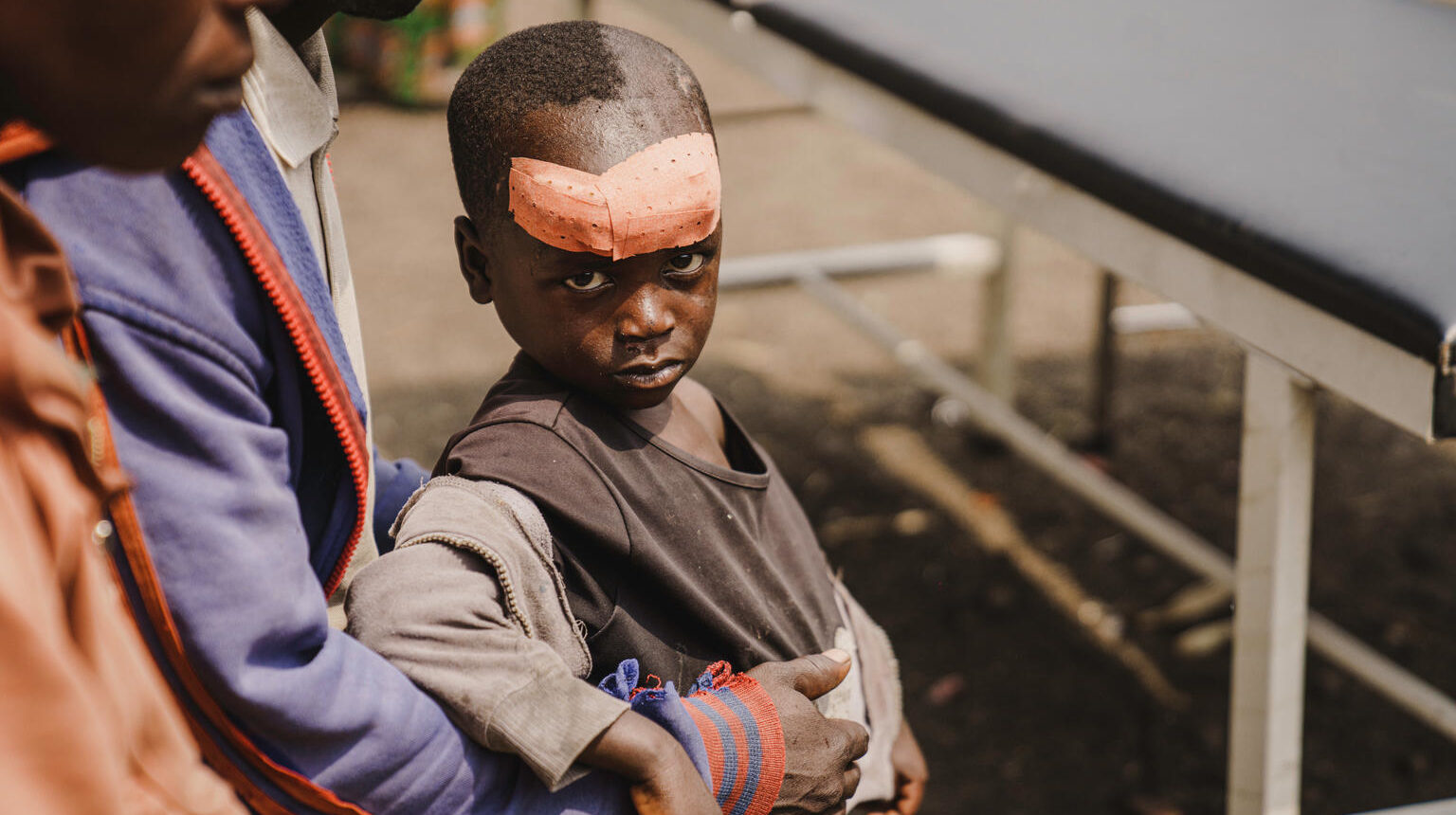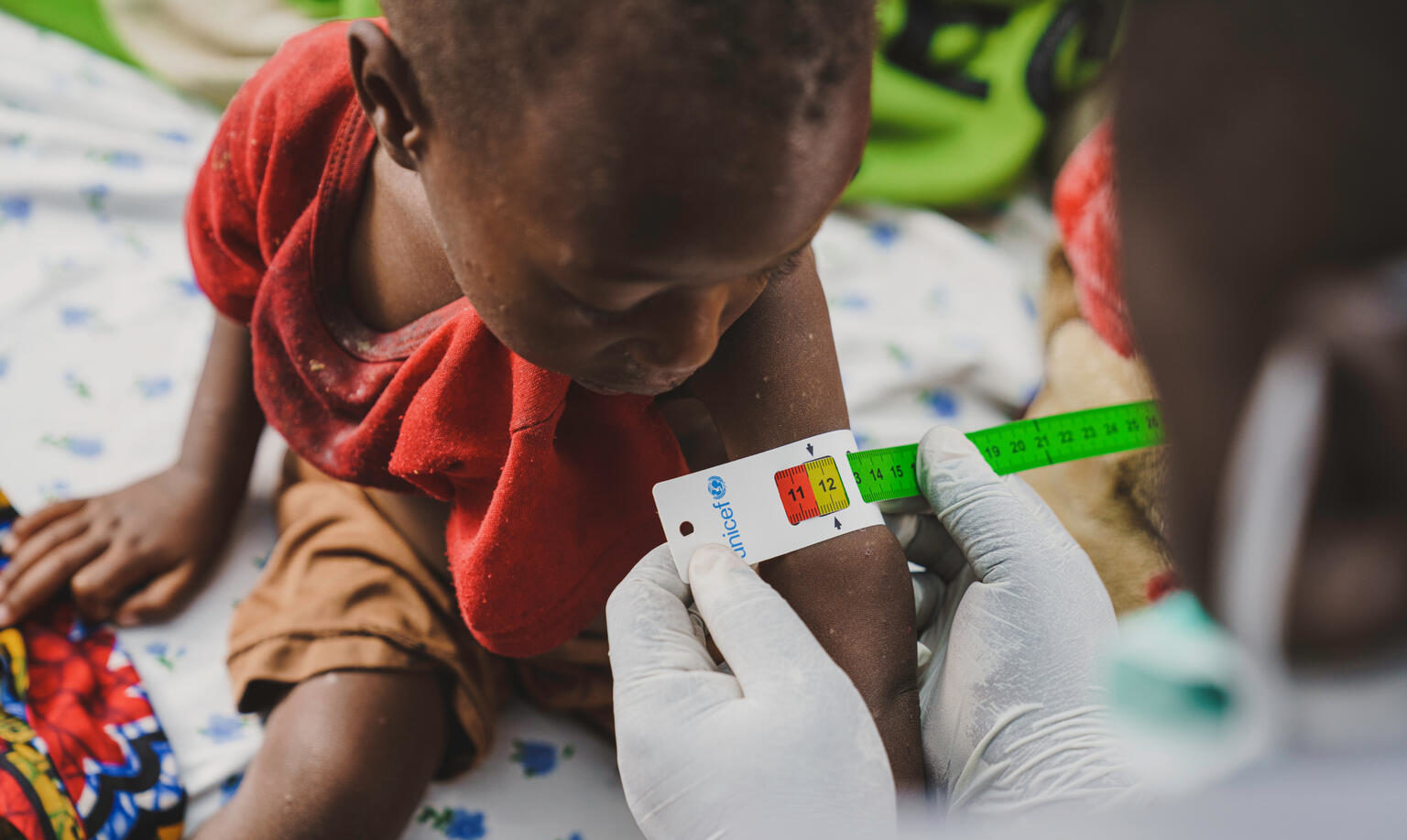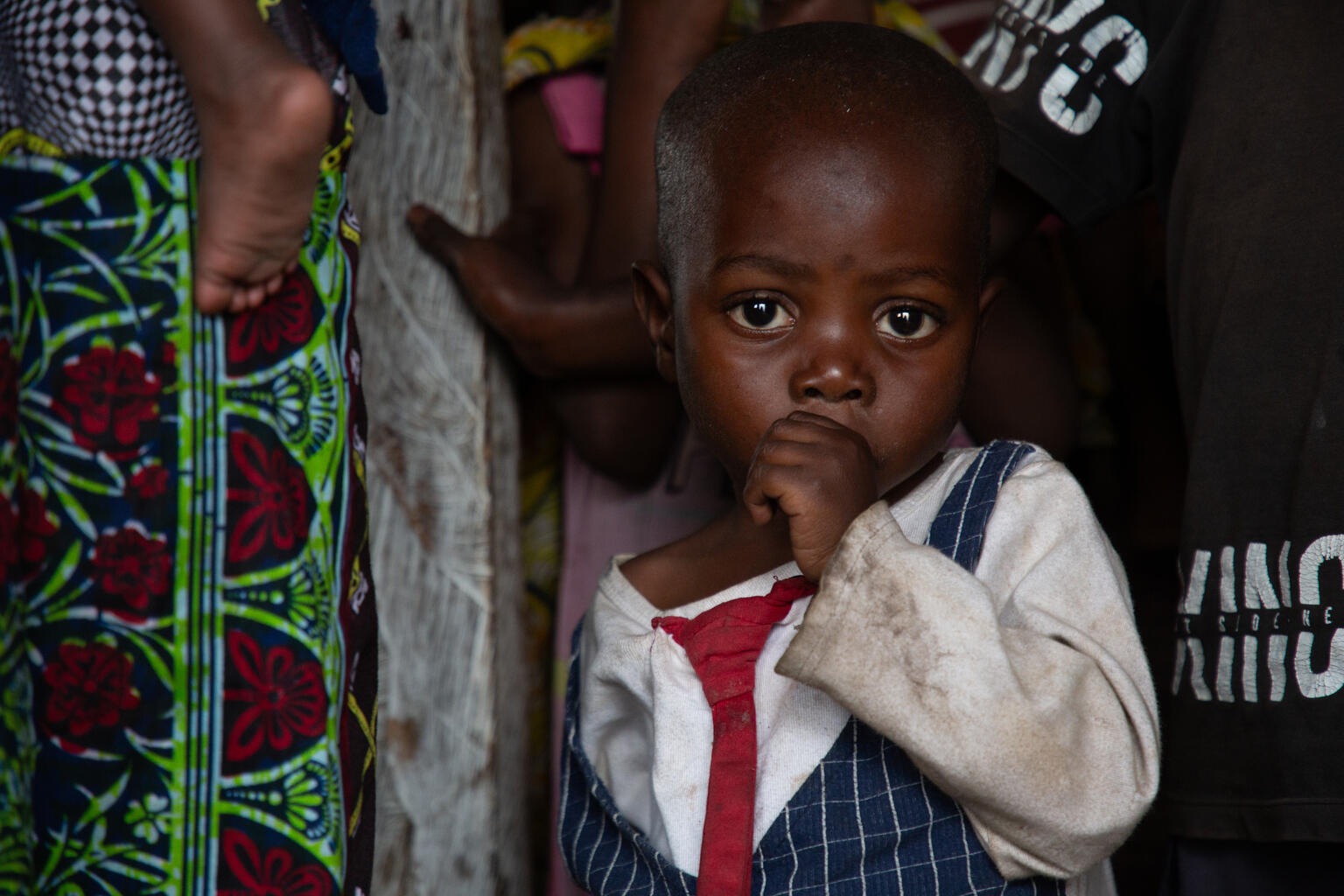A complex crisis for children
Children in Democratic Republic of the Congo (DRC) are living in one of the world’s most devastating and overlooked humanitarian crises. Relentless conflict, deadly disease outbreaks, and natural disasters have forced over 7 million people from their homes – including hundreds of thousands in late 2024 and 2025
Children are at the heart of this catastrophe, with nearly 15 million in desperate need of humanitarian aid. Many have been separated from their families, leaving them vulnerable to violence, recruitment by armed groups, and life-threatening illnesses like cholera, measles and Mpox.
In the eastern DRC, escalating violence has forced families to flee the chaos. They are crammed into overcrowded camps, with little access to food, clean water, or medical care. With hospitals overwhelmed, the situation grows more dire by the day.
For over 60 years, UNICEF has been fighting for the rights of children in DRC, and despite the ongoing crisis is committed to stepping up its efforts.
UNICEF is reaching thousands of these children right now with life-saving supplies – all thanks to our supporters. Here is just some of the ways people like you are helping save lives.
Your support can help save children in DRC
War and child protection
Disease, safe water and immunisation
Malnutrition and healthy food
Conflict and education
The miracle of a monthly gift
Every donation makes a huge difference to children’s lives. We are so grateful to all of our supporters. But monthly donors can help create lasting change.
Regular donations allow us to plan for emergencies and be there before, during and after an emergency strikes.
You can also make a donation by phoning us on 01 878 3000. Our office hours are Monday to Friday 09:00 – 17:30.
Or you can send your donation by post to
Freepost; UNICEF Ireland, 33 Lower Ormond Quay, Dublin D01 R283.
In the unlikely event that the funds raised exceed UNICEF’s funding requirements for this appeal, your donation will be directed to where the need is greatest.
Children forced into armed conflict
Children are enduring unimaginable horrors during the long conflict. Cases of grave violations against children, including rape, have surged, surpassing anything seen in recent years.
Meanwhile, relentless bombardment has left thousands injured, some of them just babies and toddlers.
Amid the chaos, hundreds of children have been separated from their parents, leaving them vulnerable to recruitment by armed groups. Children as young as 12 are being forced into combat.
UNICEF is working urgently to protect these children: identifying and reuniting families, placing unaccompanied children in foster care, and ensuring they receive critical medical and psychological support. Thanks to our supporters, UNICEF also provides medical supplies to overwhelmed hospitals and has helped secure the release of children from armed groups.

6-year-old Pascal was injured while fleeing an attack in January. His father Jean-Marie said Pascal was hit by a motorcycle and while taking him to hospital, he lost contact with the rest of his family. “To this day, I still don’t know where my five children and my wife are,” he said. “I hope my son can grow up safely and, one day, become a teacher or a doctor.”
Fighting child hunger
Malnutrition is silently devastating the lives of children. In the first half of 2024 alone, UNICEF screened 129,090 children suffering from severe wasting – all of whom were immediately admitted for treatment.
Every year, millions of children are screened, and thousands receive life-saving Ready-to-Use Therapeutic Food (RUTF).
In North Kivu, two-year-old Elenga was once among those at risk. His mother, Rebecca, initially sought traditional remedies when his belly and feet swelled, unaware that malnutrition was the cause. But at a UNICEF-supported health centre, he received the urgent care he needed.
Through UNICEF’s nutrition training, Rebecca learned how to grow her own vegetables, helping to provide both nutritious food and income for her family.
By empowering mothers, providing treatment, and ensuring access to nutritious food, UNICEF is tackling malnutrition at its root.

Bertin, 2, is suffering from moderate acute malnutrition and mpox, for which he is receiving treatment. His mother, Mahombi, said: “My husband, my two children and I fled the violence in our home village. It must be because of the difficult conditions and poor hygiene in the camp that my child fell ill. After we registered on arrival here, we were settled and given medicine and food.”


